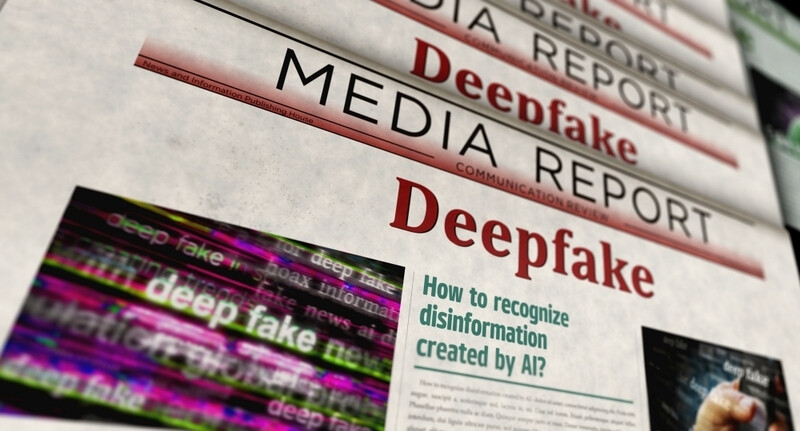
A rapid escalation in cybercrime leveraging artificial intelligence (AI) is leaving Australian businesses increasingly exposed to sophisticated new threats, according to a recent report. The alarming trend, highlighted by cybersecurity firm SoSafe, reveals that AI-driven deepfake technology is being used to convincingly mimic employee voices and appearances, while meticulously crafted fake documents tailored to specific companies and industries are becoming commonplace.
SoSafe's "Cybercrime Trends Report" paints a stark picture, indicating that nearly all Australian businesses have experienced AI-based online attacks in the past year. Small and medium-sized enterprises (SMEs), often possessing less robust cybersecurity infrastructure, are identified as being particularly vulnerable. This underscores that the threat is no longer confined to large corporations, with businesses of all sizes now potential targets of AI-enhanced cyberattacks.
Adding to the concern, Australia has emerged as a prime target for AI-fueled cyber offensives. Last month witnessed a significant incident where major Australian superannuation (pension) funds were targeted in coordinated online attacks, resulting in the theft of approximately AUD $750,000 (around KRW 1 billion). This event serves as a stark warning that AI-driven attacks can transcend mere financial losses and potentially destabilize a nation's economic foundations.
Further illustrating the sophisticated nature of these attacks, Virbac, an animal vaccine manufacturer based in Sydney, reports receiving multiple highly realistic fake invoices each month. Notably, these fraudulent invoices accurately list specific raw material items, indicating that AI is being used to analyze and exploit internal information of targeted industries and companies. This highlights the increasing precision and intelligence of these malicious campaigns.
Jacqueline Jayne, a cybersecurity expert at SoSafe, strongly cautions against underestimating the dangers of AI-powered attacks. "AI can now flawlessly replicate the grammar and tone of emails, significantly boosting the credibility of phishing attempts. We're also seeing multi-channel attacks across various platforms," she explains. "Even more concerning is the emergence of deepfake voice technology used to impersonate colleagues over the phone with remarkable authenticity, making verification incredibly difficult without pre-arranged codewords." This evolution signifies a dangerous erosion of trust, extending beyond forged documents to the very fabric of human interaction within the workplace.
The SoSafe report, based on a survey of 500 IT professionals across nine countries, including Australia, revealed a worrying statistic: only one in four respondents felt confident in their ability to effectively detect AI-based attacks. This lack of confidence among IT experts suggests that the defensive capabilities of most businesses are likely even more inadequate against rapidly evolving AI threats.
Another key characteristic of AI-driven attacks is the diversification of attack vectors. The report indicates that many attacks originate not from company networks but through personal devices such as mobile phones and laptops. Attack methods have also expanded beyond traditional email phishing to include instant messaging, social media, and even voice calls. This necessitates a re-evaluation of existing security systems, which may not be equipped to handle such multifaceted and intelligent attacks.
In response to this growing threat, security experts emphasize the critical need for comprehensive security awareness training, particularly for SMEs that may lack sophisticated cybersecurity infrastructure. This training should equip employees to identify suspicious indicators in emails and documents, such as unusual payment requests or inconsistencies in vendor credibility checks. Furthermore, establishing and consistently using pre-arranged codewords for verifying important information via phone calls is presented as a crucial defense against deepfake voice attacks.
While AI technology holds immense potential for societal advancement and innovation, its misuse in cybercrime presents a formidable and rapidly escalating threat. The situation facing Australian businesses demands immediate and decisive action. Companies must proactively implement comprehensive defense strategies that encompass not only robust technical security systems but also continuous education and training to enhance the security awareness of all employees.
Furthermore, governmental bodies must prioritize the development of legal frameworks and strengthen international cooperation to effectively counter this new wave of AI-powered cybercrime. The ominous shadow of AI-driven attacks on business security and trust can no longer be ignored.
[Copyright (c) Global Economic Times. All Rights Reserved.]




























